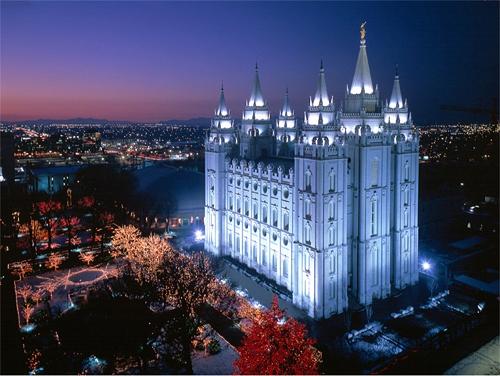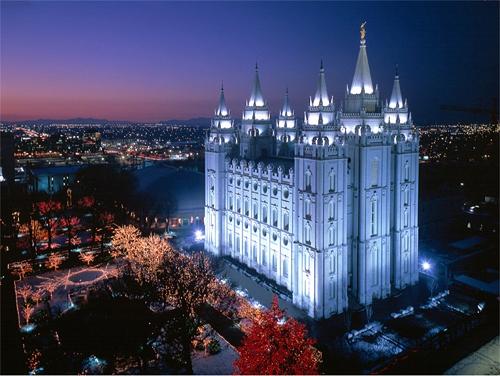This is an extremely emotional, not to mention touchy, topic for anyone to address. But I feel it is one that clearly must be spoken of and I have never been afraid to stand and be counted on anything of great import. There are really three points of view in regards to abortion:
1. And even then, abortion should not be the first thought or occurrence.
2. All life is sacred but women should be able to choose whether they wish to have an abortion or not.
3. Life doesn’t exist until the baby is born, until then it is nothing more than a fetus and has no rights or protections.
Mormons largely fall into category 1. All life is sacred. The other two viewpoints are completely abhorrent to me. In all Christian denominations we believe in the Ten Commandments as areas in which God will not budge. The sixth commandment is what applies here: “Thou shalt not kill. (Exodus 20:13)
In “A Proclamation on the Family,” the First Presidency and Quorum of the Twelve Apostles boldly declared to the world of the sanctity of family and its role in mortality and the eternities.
All human beings—male and female—are created in the image of God. Each is a beloved spirit son or daughter of heavenly parents, and, as such, each has a divine nature and destiny. Gender is an essential characteristic of individual premortal, mortal, and eternal identity and purpose.
Each child conceived is “a beloved spirit son or daughter of heavenly parents,” it is not within our right or moral agency to so carelessly discard life.
Elder Dallin H. Oaks, an Apostle, or special witness, of the Lord Jesus Christ and a former attorney, speaks quite eloquently on the matter of choice in a subject so weighty with far reaching, even eternal consequences. For there is no choice that can be made that does not have consequences, of one sort or another.
More than 30 years ago, as a young law professor, I published one of the earliest articles on the legal consequences of abortion. Since that time I have been a knowledgeable observer of the national debate and the unfortunate Supreme Court decisions on the so-called “right to abortion.” I have been fascinated with how cleverly those who sought and now defend legalized abortion on demand have moved the issue away from a debate on the moral, ethical, and medical pros and cons of legal restrictions on abortion and focused the debate on the slogan or issue of choice. The slogan or sound bite “pro-choice” has had an almost magical effect in justifying abortion and in neutralizing opposition to it.
Pro-choice slogans have been particularly seductive to Latter-day Saints because we know that moral agency, which can be described as the power of choice, is a fundamental necessity in the gospel plan. All Latter-day Saints are pro-choice according to that theological definition. But being pro-choice on the need for moral agency does not end the matter for us. Choice is a method, not the ultimate goal. We are accountable for our choices, and only righteous choices will move us toward our eternal goals.
In this effort, Latter-day Saints follow the teachings of the prophets. On this subject our prophetic guidance is clear. The Lord commanded, “Thou shalt not … kill, nor do anything like unto it” (D&C 59:6). The Church opposes elective abortion for personal or social convenience. Our members are taught that, subject only to some very rare exceptions, they must not submit to, perform, encourage, pay for, or arrange for an abortion. That direction tells us what we need to do on the weightier matters of the law, the choices that will move us toward eternal life. (Dallin H. Oaks, “Weightier Matters,” Ensign, Jan 2001, 13)
Need there be more said on the matter? Perhaps only to help everyone understand the value of each son or daughter of God, your value. Every life is precious in the eyes of the Savior and Heavenly Father. In D&C 84:80 we read: “And any man that shall go and preach this gospel of the kingdom, and fail not to continue faithful in all things, shall not be weary in mind, neither darkened, neither in body, limb, nor joint; and a hair of his head shall not fall to the ground unnoticed. And they shall not go hungry, neither athirst. Not even a hair on the head will fall to the ground unnoticed. If even that is important to Jesus Christ, do you not think that your thoughts, worries, troubles, happiness and joy are not of great importance to Him too? They are. Do you not think that every tiny, precious unborn babe is of the utmost importance to Him? I assure you, they are.
 You are of value to God and the untold numbers of people you will interact with in your life value you too. Would you deny that right of that infant, this child of God, to do the same? For from the time the child quickens within the womb, life exists and it is sacred. Know that a loving Heavenly Father looks down from on high, anxious to see you succeed in all that you strive to do. He hears your prayers, and if you will listen, He will guide you through these treacherous waters.
You are of value to God and the untold numbers of people you will interact with in your life value you too. Would you deny that right of that infant, this child of God, to do the same? For from the time the child quickens within the womb, life exists and it is sacred. Know that a loving Heavenly Father looks down from on high, anxious to see you succeed in all that you strive to do. He hears your prayers, and if you will listen, He will guide you through these treacherous waters.
There are many options available to a woman besides abortion, adoption being the key one. There are tens of thousands of childless couples who long to hold a child in their arms. LDS Family Services is one such organization that will help you place your unborn child in a loving and caring home, carefully vetted by professionals.
Please, I beg of you, consider the consequences of abortion and choose life instead. The servants of God, even God Himself, have been very clear on what is right and what is wrong in this situation. Love yourself enough, love your child enough, and give them a chance at life.
I wish to close with one more quote from Elder Oakes:
If we say we are anti-abortion in our personal life but pro-choice in public policy, we are saying that we will not use our influence to establish public policies that encourage righteous choices on matters God’s servants have defined as serious sins. I urge Latter-day Saints who have taken that position to ask themselves which other grievous sins should be decriminalized or smiled on by the law due to this theory that persons should not be hampered in their choices. Should we decriminalize or lighten the legal consequences of child abuse? of cruelty to animals? of pollution? of fraud? of fathers who choose to abandon their families for greater freedom or convenience?
Similarly, some reach the pro-choice position by saying we should not legislate morality. Those who take this position should realize that the law of crimes legislates nothing but morality. Should we repeal all laws with a moral basis so that our government will not punish any choices some persons consider immoral? Such an action would wipe out virtually all of the laws against crimes. (Dallin H. Oaks, “Weightier Matters,” Ensign, Jan 2001, 13)
I beg of you to make wise choices, even in this very serious matter, the life of an unborn child.


